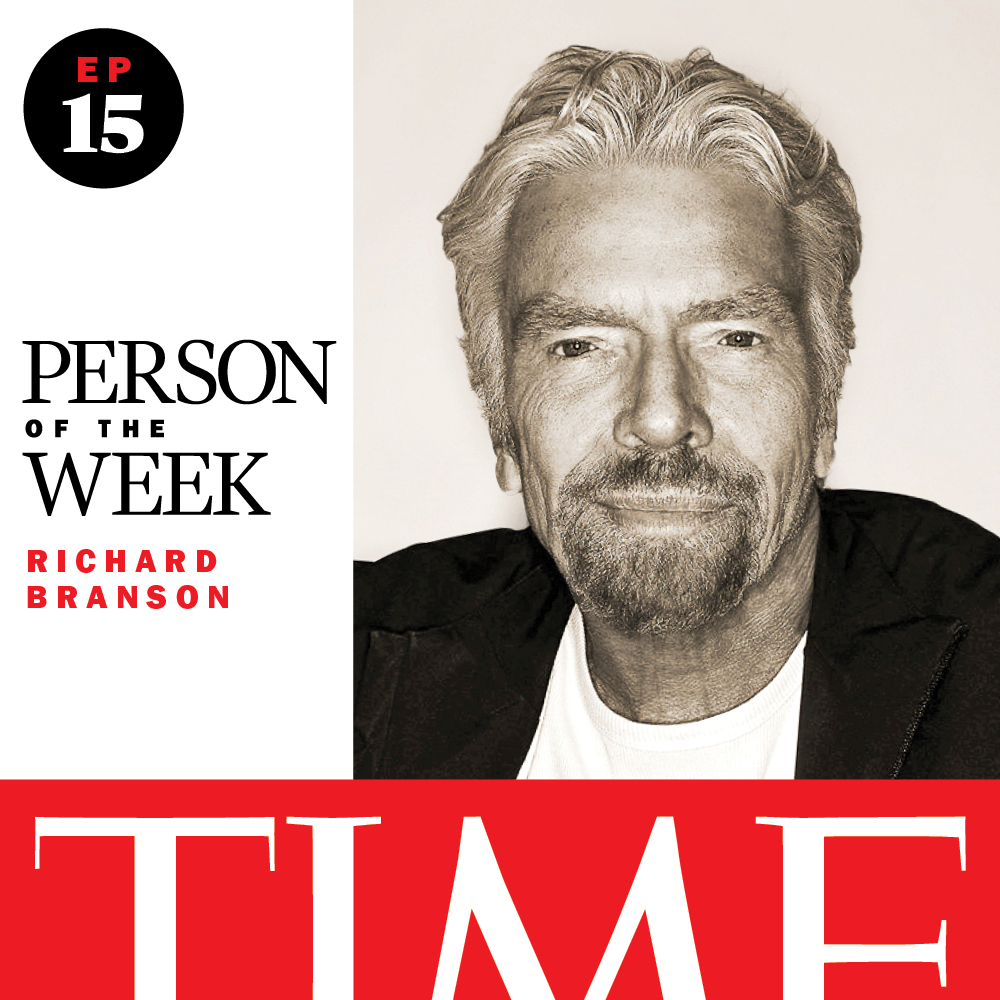Sir Richard Branson needs no introduction. One of Britain’s most famous businessmen, he founded Virgin Records in the early 1970s. Since then, he’s expanded the Virgin empire to include leisure, telecommunications, and travel, including the airline Virgin Atlantic.
And after spending 17 years and over a billion dollars building Virgin Galactic, Branson hit a major milestone in private spaceflight—when he left the earth’s atmosphere on the world’s first commercial space flight in July 2021.
He also founded Virgin Unite, a nonprofit foundation devoted to using entrepreneurial ideas to create opportunities for a better world, and co-founded the B Team, a global community of business leaders creating new norms of corporate leadership for the good of the planet.
And just recently, he announced the formation of the Planetary Guardians, a collective of leaders in business, politics, and climate activism devoted to securing a safe, just, and healthy future for humanity and the planet. Branson is a member of their Advisory Council. We also spoke about what he’s doing to align his own airline with his environmental priorities.
Tune in every Thursday, and join us as we continue to explore the minds that shape our world. You can listen to the full episode in the player above, but here are a handful of excerpts from our conversation, which have been condensed and edited for clarity.
On how his dyslexia helped make him an entrepreneur:
I wasn’t actually diagnosed with dyslexia because I don’t think the word dyslexia existed when I was young. It may have, but I can never remember it being used. I was just seen as bottom of the class, sat at the back of the class. I had no interest in what was going on in the blackboard because I didn’t really understand it.
And I started doing the things that I was interested in doing, in my notebooks, planning a national magazine for young people to protest the way we were being taught in school and things like the Vietnamese war and other atrocities that were going on at the time. And so I left school at 15, 16 to launch this magazine. And it wasn’t until I was in my 20s that I realized it was dyslexia that had held me back at school, which was actually a real blessing because I’d quit, and did my own thing and, got my own education out in the real world. But I also realized that people who were dyslexic, and I met quite a few, were often really good at other things, and perhaps because they couldn’t do certain things, they excelled at other things.
On how it felt to go to space:
Every single moment of that day was the most magical, special day of my life. And I’ve been lucky, I’ve had a few magical, special days.
But, first of all. we built our own spaceship with a wonderful team of people. And it had been 20 years of ups and downs to get to that stage and, I think nobody really believed we could put it off. And it was absolutely and utterly exhilarating.
Before I knew it, the roar of the engine and then the silence of space, and the unbuckling, and just floating in space, looking back at this beautiful Earth. It was something which I’d dreamt about since I’d stood outside my little cottage in Shamley Green when I was a teenager, with my parents looking up at the moon. It was a magical day.
Branson recently announced a new initiative called the “Planetary Guardians” a collective of leaders dedicated to elevating the science to keep the earth from hurtling past “planetary boundaries.” Given that air travel is a leading cause of emissions, I asked him about how his own airline, Virgin Atlantic, plans to combat climate change:
Airlines exist. And, you know, most of the people who come to this conference have flown in on an airline. So I’m not going to give up on trying to better this world because I run an airline.
What I’m going to try to do is make sure that that airline is run as efficiently as possible, putting out as few emissions as possible, that we get the youngest planes as possible so that, you know, people like yourself and others who have to use planes can feel that they’re using as fuel efficient a possible plane. We will also work hard to try to look for new technologies where we can actually not have any carbon emissions.
I’m not gonna have a sleepless night over something that we set up, you know, 20 years ago. It’s a fact of life. We have an airline. We’ll do our absolute best to try to make it as carbon efficient as possible.
- Why Trump’s Message Worked on Latino Men
- What Trump’s Win Could Mean for Housing
- The 100 Must-Read Books of 2024
- Sleep Doctors Share the 1 Tip That’s Changed Their Lives
- Column: Let’s Bring Back Romance
- What It’s Like to Have Long COVID As a Kid
- FX’s Say Nothing Is the Must-Watch Political Thriller of 2024
- Merle Bombardieri Is Helping People Make the Baby Decision
